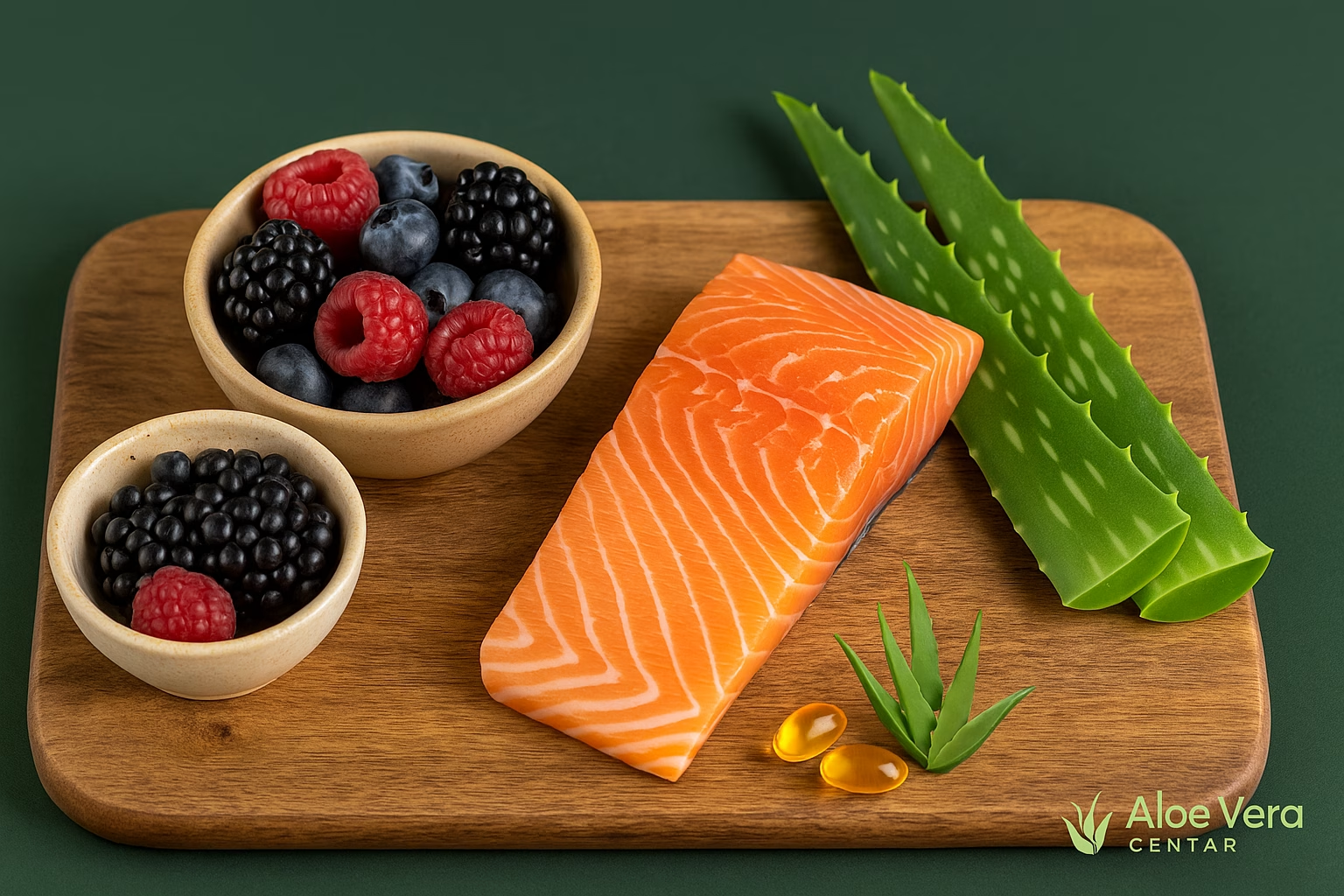
Parkinson’s Disease and Diet – Antioxidants in Symptom Relief
Parkinson’s Disease and Diet: Can Antioxidants Slow down Symptom Progression?
Parkinson’s is a complex neurodegenerative disease characterized by the gradual deterioration of nerve cells responsible for dopamine production. While modern medicine is still searching for a definitive solution, there’s growing evidence that proper nutrition rich in antioxidants, supplements like Forever Absorbent C, and targeted lifestyle strategies can significantly alleviate symptoms and improve quality of life for patients. Read on to learn how!
Oxidative Stress – your Brain’s Invisible Saboteur
You might wonder why oxidative stress is so important when discussing Parkinson’s? Here’s the deal: excess free radicals damage neuron membranes, proteins, and DNA. The result? Faster progression of tremors, stiffness, and slow movements. But that’s not all… the good news is that antioxidants – compounds that neutralize free radicals – can act as “firefighters” within your brain, extinguishing inflammatory processes before major damage occurs.
Key Dietary Antioxidants You Want on your Plate
Vitamin C – the First Line of Defense
Vitamin C participates in regenerating other antioxidants and supports the immune system. Regular consumption of citrus fruits, berries, and peppers, along with support from Forever Absorbent C supplement, can reduce oxidative stress and fatigue.
Vitamin E and Selenium “Bodyguard”
Sounds too good to be true? Keep reading… Vitamin E combined with selenium from nuts provides double protection for neuronal membranes and regulates inflammatory processes.
Polyphenols from Turmeric and Green Tea
Curcuminoids from turmeric spice have anti-inflammatory and antioxidant effects. Try a simple drink with warm almond milk, turmeric, and a pinch of pepper for better curcumin absorption.
Omega-3: the Unsung Hero of Neuronal Flexibility
Research shows that long-chain omega-3 fatty acids reduce inflammation and improve synaptic communication. Whether from fatty fish, flaxseeds, or the proven Forever Arctic Sea Omega supplement, regular intake can contribute to better mobility and more stable mood.
The Gut-Brain Axis: why Bacteria Dictate your Mood
But that’s not all… More and more studies emphasize the connection between gut health and neurodegenerative diseases. Dysbiosis can worsen inflammation, so consider fermented foods and probiotics. Learn more about how Forever Active Pro B increases beneficial bacteria levels in our article.
Aloe Vera and Antioxidant Synergy
The Aloe barbadensis Miller stem is rich in acemannan polysaccharide, known for its immuno-modulatory properties. When added to a smoothie with berries and spinach, you get a powerful cocktail of vitamins, minerals, and enzymes.
B Vitamins – Keys to Mental Energy
Low levels of B vitamins are associated with fatigue and depressive mood. Fortunately, dark leafy greens, legumes, and whole grains are rich in these nutrients. Learn why B-complex balance is important in our article about B complex vitamins.
Practical Weekly Meal Plan – Step by Step
- Monday: Oatmeal with blueberries and ground flax, quinoa and salmon lunch, dinner – lentil stew with vegetables and turmeric
- Tuesday: Smoothie with aloe gel, spinach, and banana; lunch: tuna salad with avocado and tomato; dinner – roasted chicken with broccoli
- Wednesday: Omelet with peppers and parsley, lunch – chickpeas in tomato sauce, dinner – trout with kale salad
- Thursday: Greek yogurt with walnuts and cinnamon; lunch – quinoa with stir-fried vegetables; dinner – pumpkin and ginger soup
- Friday: Buckwheat pancakes with forest fruits; lunch – whole grain pasta with arugula pesto; dinner – grilled salmon with zucchini
- Saturday: Chia pudding with coconut milk and pineapple; lunch – turkey protein wrap; dinner – mushroom and saffron risotto
- Sunday: Banana-cocoa smoothie with aloe, lunch – roasted turkey and sweet potato; dinner – red lentil and beetroot salad
Want to customize the meal plan? Launch our free AI advisor and get personalized suggestions based on your needs in seconds.
More Tips for Slower Symptom Progression
- Regular Exercise: Aerobic workouts and gentle yoga are proven to improve motor function.
- Hydration: Drink at least 8 glasses of water daily to optimize detoxification pathways.
- Sleep: Aim for 7-8 hours of sleep – the brain “cleanses” itself of toxins during this time.
- Stress Management: Meditation and mindful breathing lower cortisol levels, a hormone that worsens inflammation.
Frequently Asked Questions
1. What are the Best Antioxidant-Rich Foods for People with Parkinson’s?
Dark berries, citrus fruits, leafy greens, nuts, and fatty fish are rich in vitamin C, E, and omega-3 fatty acids.
2. Can Antioxidants be Taken Alongside Standard Medication Therapy?
In most cases yes, but always consult your neurologist first to avoid possible interactions.
3. How Quickly Can I Expect Symptom Improvement after Changing My Diet?
It’s individual, but many notice more energy and better mobility after 4-6 weeks of consistent adherence to the plan.
4. Can Supplements like Omega-3 Replace Medications?
No. Dietary supplements serve as support, not replacement for prescribed therapy. The best approach is a synergy of medications, proper nutrition, and active lifestyle.
Conclusion
Slowing down Parkinson’s disease progression requires a holistic approach: antioxidant-rich diet, targeted supplements, and healthy habits. Include omega-3, vitamin C, polyphenols, and Aloe vera in your daily menu, and for additional personalized support, contact our AI advisor. Ready for the next step? Use 15% discount on first orders and make a concrete change today.
Want to explore further how diet and natural supplements can help with Parkinson’s disease and similar conditions? Read our guide Parkinson’s and Diet, learn how the antioxidant power of Aloe vera contributes to health, or explore healthy diet recipes that easily fit into daily routine. If you’re considering a detox program for a stronger start, check out details about the Clean9 program, and for digestive and metabolism support, read our guide on gallbladder diet. Your body deserves complete care inside and out!
Disclaimer: This article is for informational purposes and is not a substitute for professional medical advice. For an individual treatment plan, consult a qualified healthcare professional.








